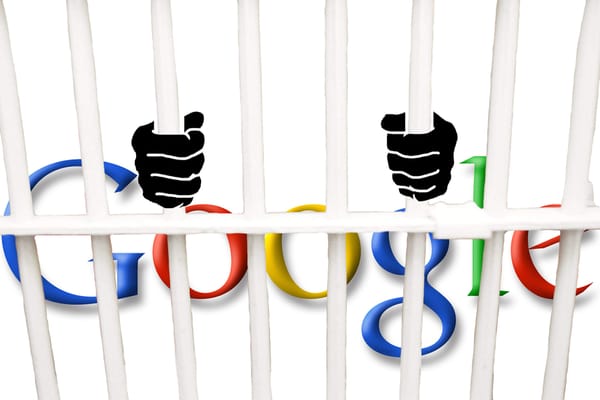The Touchscreen Patent Wars
A look at the broken world of international patent law as Apple and HTC fight over Google&8217;s Android operating system and it&8217;s use of a touch screen interface

On March 2nd, Apple Inc. filed a suit against mobile phone manufacturer HTC in which they claimed ten of their patents relating to mobile devices had been infringed. The case covers nearly every Android-based phone that HTC manufactures, including the new Google-endorsed Nexus One and the T-Mobile G1. If the case is successful, HTC may have to pay damages to Apple and could be banned from selling any of the offending phones in the US. The suit was brought to the Delaware State Courts in the US, partly because this claim would not be admissable in other regions such as the EU.
The patents in question refer to portions of mobile phone design which Apple pioneered with the iPhone, with most specifically to do with touch-screen technology. The way a user’s finger can slide a list and the ‘pinch-to-zoom’ feature are amongst the concepts covered but without any specific detail about how these features should be implemented. This means that any device which makes use of a finger to move up and down a window would technically be covered by Apple’s patent. These ideas are so blindingly obvious and fundamental to touch screen design that it’s hard to think they could even really be classed as ‘inventions’. Apple are not however completely to blame, as in some way they are ‘victims’ (if you could call them that) of a broken patent law system.
In the US, software patents are granted for almost any new concept or idea in the software world. The point about patents is that you are only meant to be able to patent actual implementations of an idea meaning only a particular system of components would be covered by it. However, the patents granted to Apple, and many other software companies besides, are so general as to cover any implementation where the system could be used. For example, the patent for list scrolling covers any touch screen device that has a processor, memory and is trying to move or resize a document or window. It’s hard to think of a situation where a touch-sensitive machine would be trying to move a window without a processor, so this is so general as to cover any touch screen device invented. This means that any device which does this, violates Apple’s patent.
The objection to situations like this is that patents should not cover inventions that many people could easily create independently of each other and should not impede development of ideas, like the list scrolling example above. Clearly though, software patents can and do protect some genuinely good and useful ideas, such as security or cryptographic concepts that took a lot of work to create. The line between trivial and non-trivial software inventions is not universally agreed upon, being drawn in different places in different countries. The US system is notoriously lenient on how original or obvious the new software design needs to be.
What this leads to is companies applying for as many patents as they can for ideas that are as general as they can get away with, effectively buying up patent ‘real estate’ for their own use. Obviously, this can lead to problems with one company owning some pieces of a design and another company owning the rest, meaning that no-one has enough patents to make a finished product without licencing. As this is clearly ridiculous there seems to have been a ‘gentlemen’s agreement’ between the big mobile companies over the past few years, creating a ‘don’t sue me and I won’t sue you’ situation. As long as no-one sues anyone else the system works, because the companies know it only takes a court case for one patent to open the floodgates for themselves to be hit by a load of litigation in retaliation. So why has Apple now decided to break this unwritten rule?
Earlier this February, Google enabled ‘pinch-to-zoom’, a feature that the iPhone is famous for, on some of its newer Android phones including the Nexus One. This is technically in violation of one of Apple’s software patents mentioned earlier, and this time Apple have decided to sue. HTC are liable because even though they don’t make the software they do manufacture and sell the phone, and so are responsible for its features. It may be that Apple is trying to indirectly harm Google, who is now beginning to be see as a serious competitor, by stifling its phone business in the US. Compared to other industry leaders like Microsoft or Nokia, Google and HTC have relatively few software patents relevant to Apple’s business and so are limiting the damage that any return litigation can do to them via the same method.
Some commentators have also suggested that Apple may have taken the adaption of its original ideas by Google and HTC personally. It’s impossible to deny that the iPhone was a revolution in mobile design. Most phones up to that point had relied on a hard keyboard, navigation keys and a stylus. Apple pioneered many new ideas that have been universally taken up by almost all other touch-screen phone manufacturers. Some have suggested the powers that be at Apple are disgruntled at working hard to create this ‘design revolution’ and seeing others reap the rewards. Is Apple simply frustrated that their key design has been copied? You have to wonder though if they could really be so naive as to think that creating such an original device wouldn’t set new standards in phone design.
You’ve also got to wonder how Apple think winning this case could possibly help them. Ignoring the fact that this is really bad publicity that could result in a consumer backlash, it’s very unlikely that Google will simply walk away from this case and leave the mobile market altogether. The more likely situation is that they’ll go back to the drawing board and keep working until they come up with ideas that are even more revolutionary than the iPhone. You can bet your bottom dollar that whatever they come up with they won’t be willing to share with Apple. Does Apple really think that it’s the only one who can come up with new ideas?
The natural extension of behaviour like this is that everyone keeps their new patents and technologies to themselves. It’s ridiculous to think that the next generation of iPods or Zunes could end up with fewer features than their predecessors because everyone is so scared of violating patent law and unwilling to pay huge licence fees. This just stifles innovation and sets back progress on mobile technology. Plus, all these suits cost money and eventually that cost has to pass on to the consumers. If Apple really care about the mobile device marketplace (and they should, because it makes up a large majority of their income) then they should do the intelligent thing and drop the suit, using the money they would have spent on lawyers and bureaucrats to fund their own research and development.









